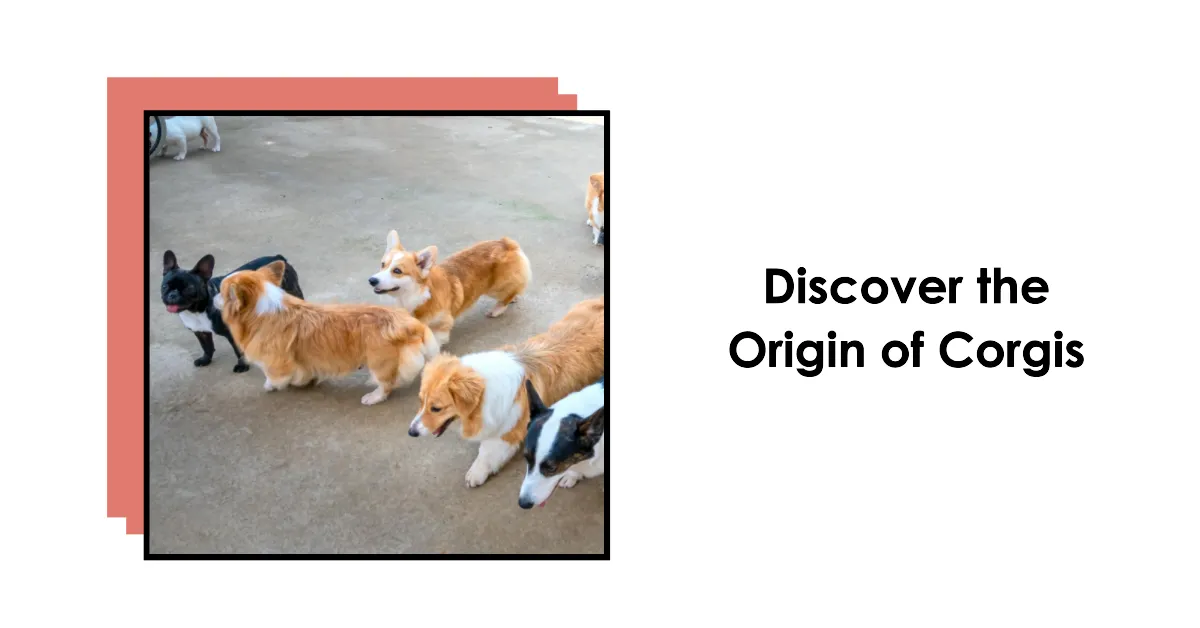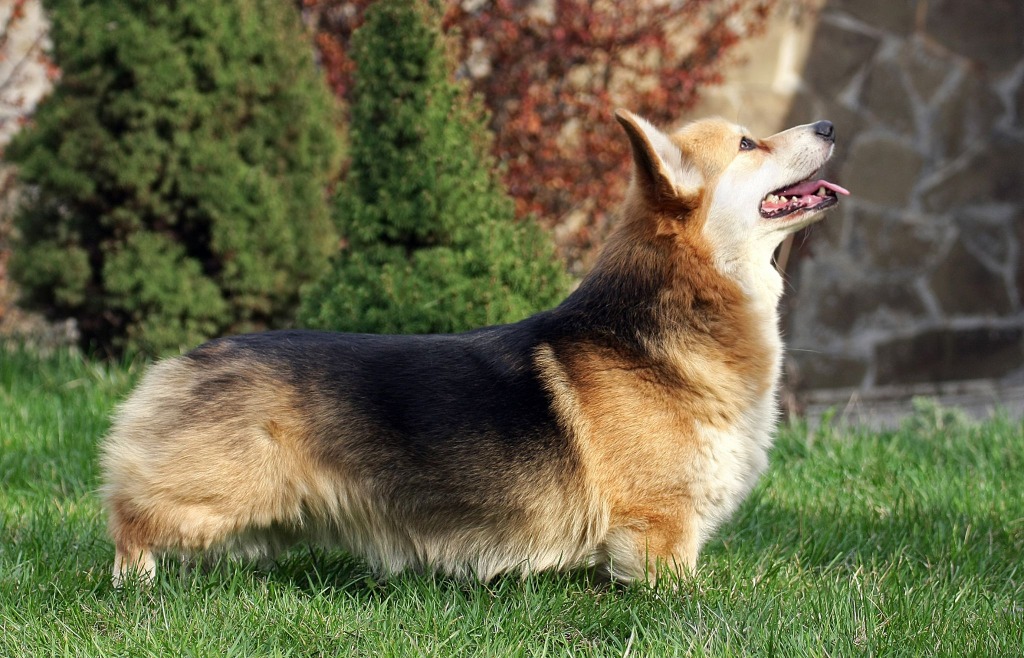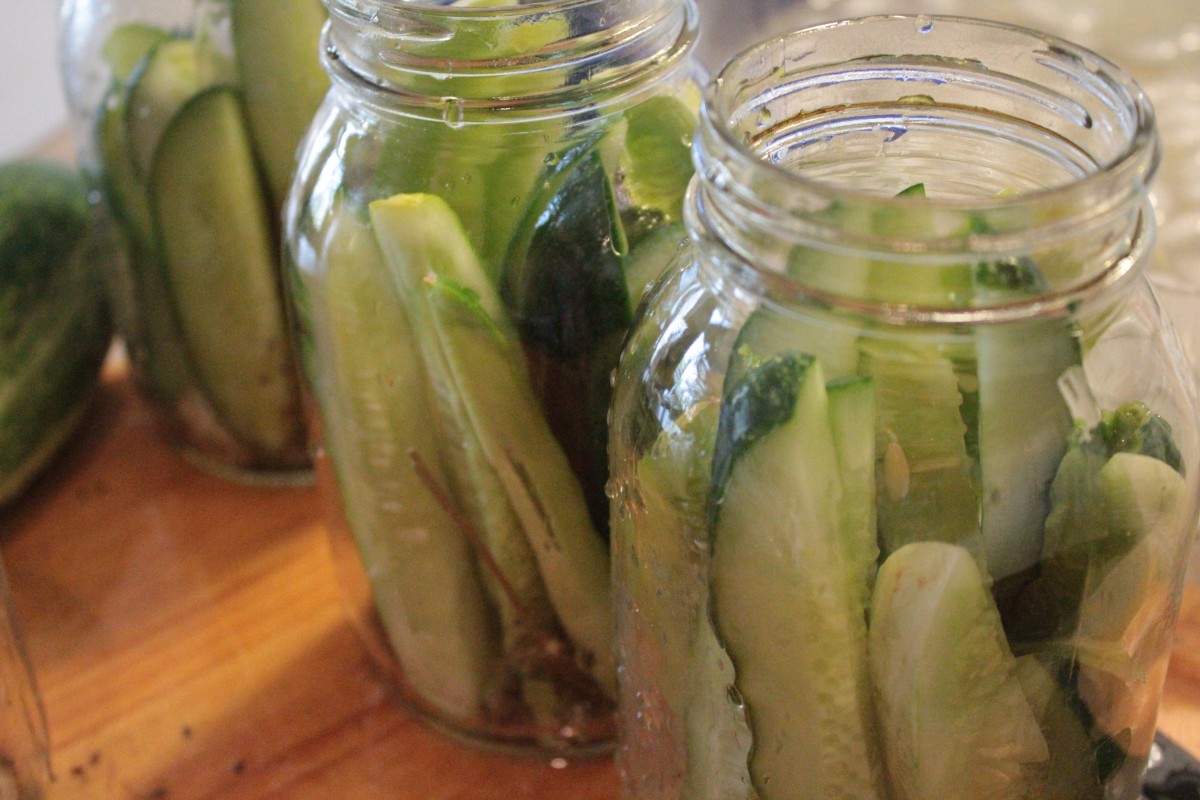Optimal Meal Portions for a Healthy Corgi

Want to keep your beloved corgi in tip-top shape? Well, let's talk about the ideal meal portions for your furry friend.
We all know that maintaining a healthy weight is important for our corgis, but figuring out the perfect amount of food can be a bit tricky. Don't worry, though! We've got you covered with some simple guidelines to help you navigate this journey.
By understanding the nutritional needs of your corgi, considering factors like age and activity level, and ensuring balanced meals, you can ensure your corgi stays healthy and happy.
So, let's dive in and learn how to portion control for your corgi, keeping them safe and satisfied along the way!
Understanding Corgi Nutritional Needs
To ensure a healthy Corgi, you need to understand their nutritional needs. A well-balanced diet is essential for your furry friend's overall wellbeing. When it comes to the Corgi diet, it's crucial to meet their specific nutritional requirements.
Corgis are known for their love of food, but it's important to be mindful of portion sizes and the quality of their meals. Providing a balanced diet rich in protein, carbohydrates, healthy fats, and essential vitamins and minerals is key. Consult with your veterinarian to determine the appropriate portion sizes for your Corgi based on their age, weight, and activity level.
Factors to Consider in Portion Control
When it comes to portion control for your corgi, there are two key factors to consider.
First, you need to take into account their caloric needs and activity level. Just like humans, dogs require different amounts of food based on their energy expenditure.
Second, weight management strategies play a crucial role in determining the right portion size for your furry friend. By monitoring their weight and adjusting their portions accordingly, you can help them maintain a healthy physique.
Caloric Needs and Activity
Considering the caloric needs and activity level of your corgi is vital in determining the appropriate portion size for their meals. Here are some important factors to keep in mind:
- Caloric requirements: Corgis have different caloric needs based on their age, weight, and overall health. It's important to consult with your veterinarian to establish the right amount of calories your corgi should consume each day.
- Exercise levels: The amount of exercise your corgi gets is directly related to their caloric needs. If your corgi is highly active and goes for long walks or runs, they'll need more calories to fuel their energy. On the other hand, if your corgi is more sedentary, they'll require fewer calories to maintain a healthy weight.
- Monitoring weight: It's crucial to regularly monitor your corgi's weight and adjust their portion sizes accordingly. If they start gaining weight, you may need to slightly decrease their portion sizes to prevent obesity and related health issues.
Weight Management Strategies
To effectively manage your corgi's weight and control portion sizes, it's crucial to understand the key factors involved in maintaining their optimal health.
When it comes to weight management strategies, there are a few techniques you can implement. First and foremost, portion control is essential. It's important to follow portion size guidelines provided by your veterinarian. They can help you determine the appropriate amount of food for your corgi based on their age, size, and activity level.
Additionally, consider incorporating weight loss techniques such as increasing exercise and reducing calorie intake. Regular exercise not only helps burn calories but also keeps your corgi fit and healthy.
Lastly, avoid overfeeding or giving too many treats, as this can contribute to weight gain.
Recommended Daily Caloric Intake for Corgis
You should aim for an optimal daily caloric intake for your Corgi to maintain a healthy weight and overall well-being. Here are some things to keep in mind when determining your pup's daily caloric requirements:
- Age: Puppies have higher energy needs compared to adult dogs. As they grow, their caloric intake should be adjusted accordingly.
- Activity level: Corgis are known for their energetic nature, so if your furry friend loves long walks and playtime, they'll need more calories to fuel their active lifestyle.
- Weight management: If your Corgi needs to shed a few pounds, it's important to reduce their caloric intake gradually. Rapid weight loss can be detrimental to their health.
Adjusting Meal Portions for Corgi Puppies
When determining the optimal meal portions for your Corgi puppies, it's important to take into account their age, activity level, and weight management goals. Adjusting meal frequency and creating a feeding schedule for your corgi puppies is crucial to their overall health and development.
Puppies have different nutritional needs compared to adult dogs, and it's essential to provide them with the right amount of food at the right times. As a general guideline, puppies should be fed three to four times a day until they're about six months old. However, every puppy is unique, so it's important to consult with your veterinarian for specific recommendations based on your puppy's age and weight.
Portion Control for Adult Corgis
Are you unsure about how much food to give your adult Corgi? Well, let's talk about ideal serving sizes and portion control for your furry friend.
Maintaining a healthy weight is crucial for your Corgi's overall well-being, so we'll also go over some weight management tips to keep them in tip-top shape.
Ideal Serving Sizes
How much should you feed your adult Corgi to maintain proper portion control? When it comes to ideal serving sizes for your furry friend, there are a few portion control strategies you should keep in mind to ensure they stay healthy and happy. Here's a quick breakdown to help you navigate mealtime:
- Measure and weigh: Use a measuring cup and a kitchen scale to accurately portion your Corgi's meals. This will help you avoid overfeeding and keep their weight in check.
- Follow feeding guidelines: Consult your veterinarian or the pet food manufacturer's recommendations for your Corgi's specific breed, age, and activity level. These guidelines are designed to provide a good starting point for portion sizes.
- Monitor body condition: Regularly assess your Corgi's body condition to determine if they're maintaining a healthy weight. Adjust their portion sizes accordingly if they're gaining or losing weight.
Weight Management Tips
To maintain optimal weight for your adult Corgi, focus on portion control. Weight management is crucial for your furry friend's overall health and well-being. Controlling the portion size of their meals is one of the most effective weight loss methods.
But how do you calculate the right portion size for your Corgi? It's not as complicated as it sounds. Start by considering their age, activity level, and current weight. Consult your veterinarian to determine the appropriate daily caloric intake for your Corgi.
Once you have that information, you can easily calculate the portion size using a simple formula. Remember, portion control is essential for weight management, so ensure you feed your Corgi the right amount to keep them fit and healthy.
Ensuring Balanced Meals for Corgis
To ensure a well-balanced meal for your Corgi, include a variety of essential nutrients in their daily diet. A balanced diet is crucial for your furry friend's overall health and well-being.
Here are three key components to consider when creating a Corgi meal plan:
- Protein: Include high-quality sources of protein like lean meats, fish, or poultry. This will help support your Corgi's muscle development and repair.
- Carbohydrates: Opt for complex carbohydrates such as whole grains and vegetables. These provide energy and essential fiber for healthy digestion.
- Healthy fats: Incorporate sources of healthy fats like fish oil or flaxseed. These can aid in maintaining your Corgi's coat and skin health.
By incorporating these essential nutrients into your Corgi's meal plan, you can provide them with a well-rounded and balanced diet.
Monitoring Weight and Adjusting Portions
Keep track of your Corgi's weight and make necessary adjustments to their meal portions. Regular weight monitoring is essential to ensure your furry friend maintains a healthy weight. Just like humans, dogs can gain or lose weight depending on their diet and exercise routine.
Start by weighing your Corgi regularly, ideally once a month, and record the results. If you notice your Corgi's weight increasing or decreasing significantly, it's time to adjust their meal portions. Decrease the portion size if your Corgi is gaining weight and increase it if they're losing weight. It's important to make gradual changes to prevent any digestive issues.
Frequently Asked Questions
Can I Feed My Corgi the Same Portion Size as My Other Dog?
Feeding your corgi the same portion size as your other dog might not be the best idea. Corgi nutrition is unique, and they have specific feeding guidelines to keep them healthy. It's important to consider their individual needs.
How Often Should I Adjust My Corgi's Meal Portions?
You should adjust your corgi's meal portions regularly to meet their changing needs. Their metabolism can fluctuate, so it's important to keep an eye on their weight and adjust accordingly to ensure they stay healthy.
Are There Any Specific Foods That Corgis Should Avoid?
When it comes to your corgi's diet, there are certain foods you should avoid. Some common dietary restrictions for corgis include chocolate, grapes, onions, and fatty foods. It's important to keep your furry friend safe and healthy!
Can I Give My Corgi Treats in Addition to Their Regular Meals?
Yes, you can give your corgi treats in addition to their regular meals. Just make sure to choose healthy options that are appropriate for their size and dietary needs. Treats should be given in moderation and not replace their main meals.
How Can I Tell if My Corgi Is Overweight and Needs to Have Their Portion Size Adjusted?
If your corgi is showing signs of being overweight, it's important to adjust their portion sizes accordingly. Look for indicators like difficulty moving, excess fat, and a lack of waist. Consult a vet to determine the ideal weight range for your furry friend.











